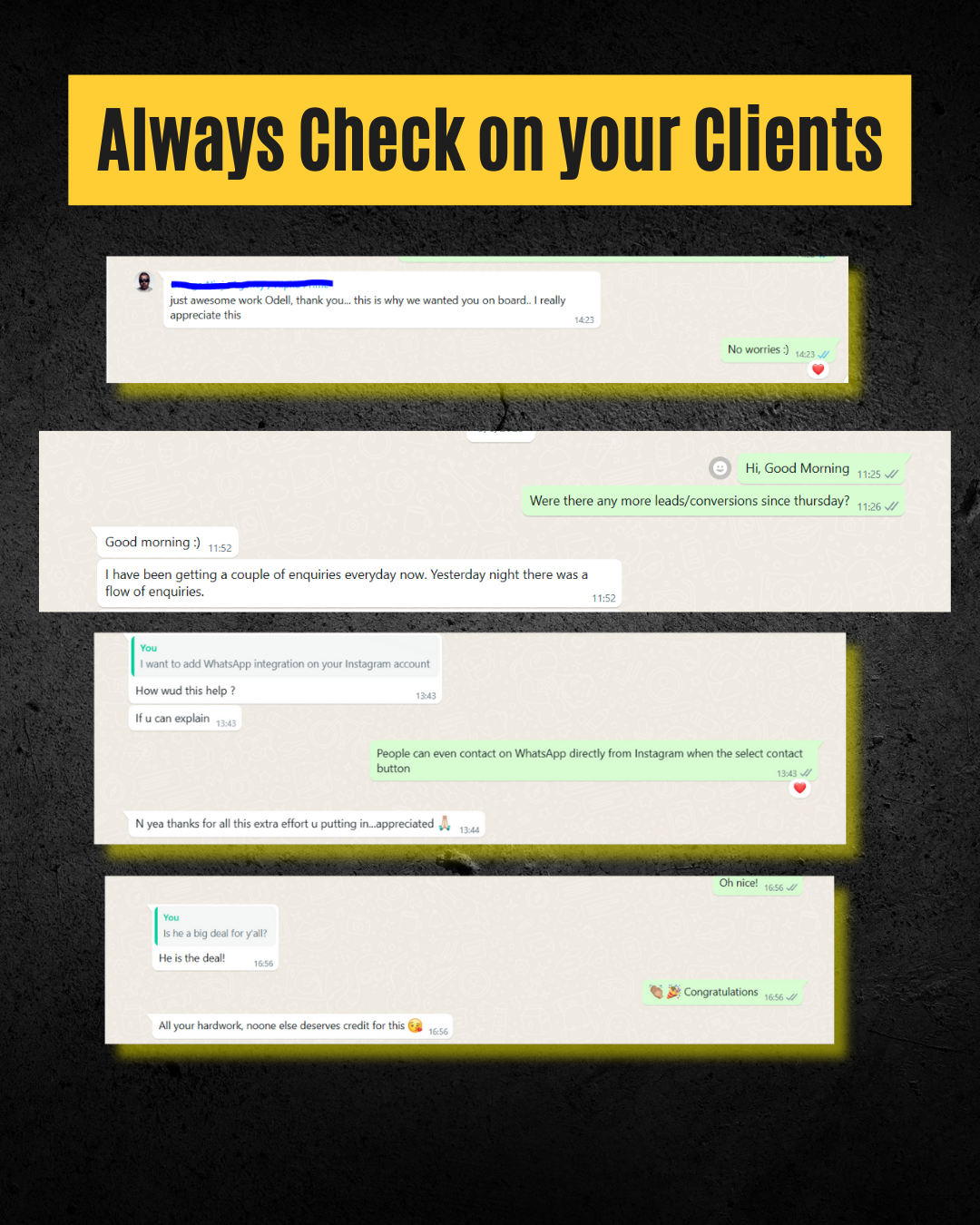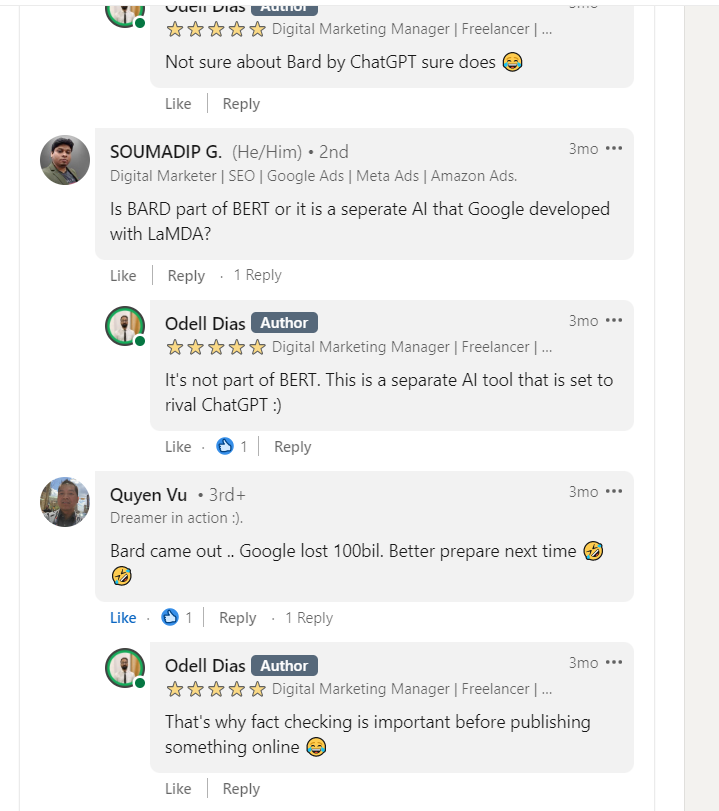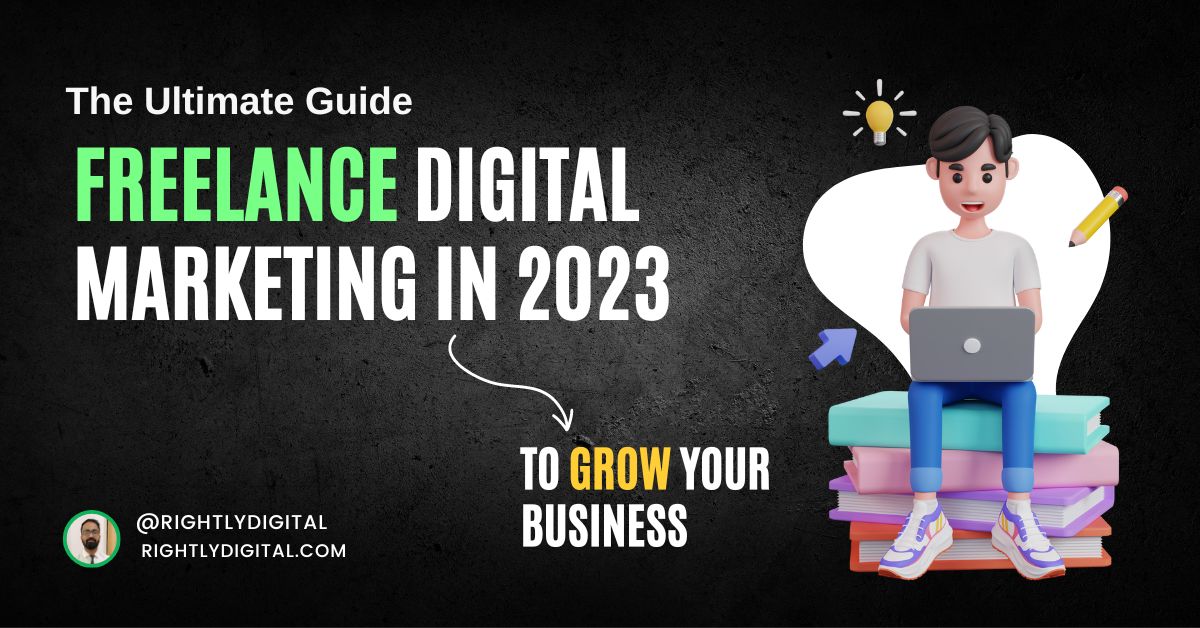Welcome to our comprehensive guide to freelance digital marketing! In this article, we will delve deep into the world of freelance digital marketing, providing you with invaluable insights, strategies, and tips to succeed in this dynamic field.
Whether you’re looking to learn how to start freelancing in digital marketing or want to enhance your existing freelance digital marketing business, this guide has got you covered.
Table of Contents
1. Understanding the Digital Marketing Industry
By understanding the latest trends, tools, and strategies, you can position yourself as an authoritative force in the industry.
The digital marketing landscape is shaped by various components, including search engine optimization (SEO), content marketing, social media marketing, paid advertising, email marketing, and more. Each element plays a vital role in reaching and engaging target audiences.
To navigate this complex terrain, it’s important to stay updated with the latest industry news and developments. Subscribe to reputable digital marketing blogs, attend industry conferences and webinars, and engage in online communities to connect with fellow professionals and exchange knowledge.
2. Setting Up Your Freelance Digital Marketing Business
Starting a freelance digital marketing business requires meticulous planning and strategic execution. It’s essential to define your niche and target audience to establish a clear direction for your services. By specializing in a specific area, such as social media marketing or SEO for e-commerce, you can position yourself as an expert and attract clients seeking specialized expertise.
Creating a business plan is a crucial step to outline your goals, target market, pricing structure, and marketing strategies. Conduct thorough market research to identify your competition, understand industry benchmarks, and differentiate yourself from other freelance marketers.
To establish your online presence, build a professional website that showcases your portfolio, services, and testimonials from satisfied clients. Optimize your website for search engines by incorporating relevant keywords, creating compelling meta tags, and ensuring a user-friendly experience.
3. Crafting a Winning Digital Marketing Strategy
A well-crafted digital marketing strategy is the backbone of freelance success. It sets the foundation for your marketing efforts and helps you achieve your business objectives. To create an effective strategy, start by identifying your target audience.
Conduct market research to understand their demographics, preferences, pain points, and online behaviors. Use this information to develop detailed buyer personas that represent your ideal customers. Tailor your marketing messages and channels to resonate with these personas and address their unique needs.
Also Read: Swot Analysis in Digital Marketing
Setting clear goals is another crucial aspect of your digital marketing strategy. Define specific, measurable, attainable, relevant, and time-bound (SMART) goals that align with your overall business objectives. Whether it’s increasing website traffic, generating leads, or boosting conversions, your goals will guide your actions and measure your success.
Competitor research is equally important. Analyze your competitors’ digital presence, strategies, and tactics to identify areas of opportunity and differentiation. By understanding what sets you apart from the competition, you can position yourself as a unique and valuable choice for potential clients.
4. Navigating the Competitive Freelance Market
Standing out from the competition is essential to attract high-quality clients. Here are some strategies to help you differentiate yourself and win over potential clients:
Define Your Unique Selling Proposition (USP): Identify what makes you special and communicate it clearly. Whether it’s your expertise in a specific industry, your innovative approach, or your exceptional client service, highlight your USP to set yourself apart from other freelancers.
Create a Compelling Portfolio: Showcase your past successes and demonstrate your expertise through a portfolio of your best work. Include case studies, testimonials, and measurable results to substantiate your claims and build trust with potential clients. If you don’t have a website, you can use Canva’s Free Portfolio Builder to create your portfolio
Offer Specialized Services: Position yourself as a specialist in a specific area of digital marketing. By honing your skills in a particular niche, you can become the go-to expert for clients seeking specialized knowledge and experience.
Deliver Exceptional Client Experiences: Provide outstanding customer service, maintain transparent communication, and consistently exceed client expectations. Happy clients not only become repeat customers but also serve as valuable word-of-mouth referrals.
5. Effective Client Communication and Relationship Building

Building strong relationships with clients is crucial for long-term success as a freelance digital marketer. Effective communication is the cornerstone of these relationships. Here are some tips to foster clear and productive client communication:
Active Listening: Take the time to truly understand your clients’ needs, goals, and challenges. Ask insightful questions, clarify expectations, and actively listen to their feedback. This will demonstrate your commitment to their success and help you tailor your strategies accordingly.
Transparency and Honesty: Be transparent about your processes, timelines, and deliverables. If challenges arise or deadlines need adjustment, communicate proactively and honestly with your clients. Building trust through transparent communication is essential for a long-lasting partnership.
Regular Updates: Keep your clients informed about the progress of their projects. Provide regular updates, reports, and analytics to demonstrate the value you’re delivering. This level of transparency will strengthen the client’s confidence in your abilities and foster a sense of collaboration.
Managing Expectations: Clearly define the scope of work, project timelines, and deliverables from the outset. By managing expectations effectively, you can avoid misunderstandings, prevent scope creep, and ensure a smooth working relationship with your clients.
6. Leveraging Social Media for Freelance Success
Social media platforms offer incredible opportunities for freelancers to showcase their expertise, connect with potential clients, and build a strong personal brand. Here’s how you can leverage social media effectively:
Choose the Right Platforms: Identify the social media platforms where your target audience is most active. Focus your efforts on platforms such as LinkedIn, Twitter, Facebook, or Instagram, depending on your niche and the preferences of your ideal clients.
Content Strategy: Develop a content strategy that aligns with your target audience‘s interests and pain points. Share valuable insights, industry news, and actionable tips to position yourself as a trusted thought leader in your field. Use a mix of formats, including articles, videos, infographics, and podcasts, to cater to different preferences.

Engagement and Networking: Actively engage with your audience by responding to comments, participating in relevant discussions, and networking with industry peers. Building meaningful connections and engaging in conversations will help you expand your reach and attract potential clients.
Paid Advertising: Consider investing in social media advertising to amplify your reach and target specific audience segments. Platforms like Facebook and LinkedIn offer robust targeting options, allowing you to reach potential clients based on demographics, interests, and behaviors.
By harnessing the power of social media, you can elevate your freelance digital marketing career and establish a strong online presence that attracts clients and sets you apart from the competition.
7. Mastering SEO and Content Marketing Techniques
Search Engine Optimization (SEO) and content marketing are integral to driving organic traffic and establishing authority in the digital space. Here are some key techniques to help you master these crucial elements:
Keyword Research: Conduct thorough keyword research to identify relevant search terms and phrases that your target audience is using. Use keyword research tools, such as SEMrush or Ahrefs, to discover high-volume and low-competition keywords that can enhance your content’s visibility.
On-Page Optimization: Optimize your website and content by incorporating target keywords naturally into your titles, headings, meta descriptions, and body text. Ensure that your content is well-structured, mobile-friendly, and optimized for fast loading speeds.
High-Quality Content Creation: Create compelling and valuable content that addresses the needs and interests of your target audience. Develop in-depth articles, guides, case studies, and infographics that provide unique insights and actionable takeaways. Remember to use a mix of text, visuals, and multimedia elements to enhance engagement.
Link Building: Earn high-quality backlinks from authoritative websites to establish credibility and improve your search rankings. Develop relationships with industry influencers, contribute guest articles to reputable publications, and create shareable content that naturally attracts links.
User Experience (UX): Provide a seamless and intuitive user experience across your website. Ensure easy navigation, fast loading times, mobile responsiveness, and clear calls-to-action. A positive user experience enhances engagement, reduces bounce rates, and signals to search engines that your site is valuable to users.
By implementing these SEO and content marketing techniques, you can enhance your website’s visibility, attract organic traffic, and outrank competitors in search engine results.
8. Harnessing the Power of Paid Advertising
While organic traffic is essential, paid advertising can provide an extra boost to your freelance digital marketing efforts. Here’s how you can harness the power of paid advertising:
Define Your Advertising Goals: Clearly outline your objectives for paid advertising campaigns. Whether it’s driving website traffic, generating leads, or increasing conversions, align your advertising goals with your overall business objectives.

Choose the Right Advertising Platforms: Identify the platforms that are most relevant to your target audience and align with your advertising goals. Popular options include Google Ads, Facebook Ads, LinkedIn Ads, and Twitter Ads. Each platform offers unique targeting options and ad formats to suit different marketing objectives.
Audience Targeting: Leverage the targeting capabilities of advertising platforms to reach your ideal audience. Narrow down your audience based on demographics, interests, behaviors, and location to ensure your ads are seen by the right people.
Compelling Ad Creative: Create visually appealing and engaging ad creative that grabs attention and entices users to click. Craft compelling ad copy that clearly communicates your value proposition and encourages action. Test different variations to optimize your ad performance.
Budget Management: Set a realistic budget for your paid advertising campaigns and monitor your spending closely. Optimize your campaigns based on performance data and adjust your budget allocation accordingly to maximize your return on investment.
Tracking and Analytics: Implement tracking mechanisms such as conversion pixels, UTM parameters, and event tracking to measure the effectiveness of your paid advertising campaigns. Analyze the data to identify what’s working and make data-driven optimizations to improve campaign performance.
Paid advertising, when executed strategically, can complement your organic efforts and help you reach a wider audience, drive targeted traffic, and achieve your marketing goals.
9. Building a Strong Personal Brand

In the freelance digital marketing industry, building a strong personal brand can set you apart from the competition and attract high-paying clients. Here are some key strategies to establish a compelling personal brand:
Define Your Brand Identity: Determine what you want your personal brand to represent. Identify your unique strengths, values, and the qualities that differentiate you from others. Craft a compelling brand story that resonates with your target audience.
Consistent Online Presence: Maintain a consistent and professional online presence across various platforms, including your website, social media profiles, and industry-related forums. Use consistent branding elements such as colors, fonts, and tone of voice to create a cohesive brand image.
Thought Leadership: Share your expertise and insights through thought leadership content. Write blog articles, create videos, or host webinars that provide valuable information and position you as an authority in your field. Collaborate with industry influencers, contribute to industry publications, and participate in speaking engagements to further establish your thought leadership.
Networking and Relationship Building: Actively engage with industry peers, potential clients, and influencers through networking events, conferences, and online communities. Build meaningful relationships, offer value, and seek collaboration opportunities to expand your network and enhance your brand visibility.
Online Reputation Management: Monitor and manage your online reputation by regularly reviewing your brand mentions and customer reviews. Address any negative feedback promptly and professionally. Encourage satisfied clients to leave positive reviews and testimonials to bolster your credibility.
By building a strong personal brand, you can attract clients who resonate with your values and expertise, ultimately leading to greater success in your freelance digital marketing career.
10. Tracking and Measuring Performance
Tracking and measuring the performance of your digital marketing efforts are crucial for optimizing your strategies and demonstrating value to your clients. Here’s how you can effectively track and measure performance:
Key Performance Indicators (KPIs): Define relevant KPIs that align with your marketing goals. These may include website traffic, conversion rates, click-through rates, engagement metrics, or revenue generated. Set benchmarks and regularly track your performance against these metrics.
Analytics Tools: Utilize powerful analytics tools like Google Analytics, Adobe Analytics, or HubSpot to gather insightful data about your website and marketing campaigns. These tools provide valuable metrics and insights that can help you identify areas for improvement and make data-driven decisions.
Conversion Tracking: Implement conversion tracking mechanisms to measure the effectiveness of your campaigns in driving desired actions. Set up conversion tracking pixels or codes to track actions such as form submissions, purchases, or lead generation.
A/B Testing: Conduct A/B tests to compare the performance of different variations of your marketing campaigns. Test different elements such as headlines, ad copy, call-to-action buttons, or landing page designs. Analyze the results to identify winning variations and optimize your campaigns accordingly.
Regular Reporting: Create comprehensive reports that showcase the performance of your marketing efforts to your clients or stakeholders. Present the data in a visually appealing and easy-to-understand format, highlighting key insights and the impact of your strategies on their business objectives.
By consistently tracking and measuring your performance, you can identify what’s working, make data-driven optimizations, and continuously improve the effectiveness of your freelance digital marketing campaigns.
11. Expanding Your Freelance Digital Marketing Business
Once you’ve established a successful freelance digital marketing business, you may want to consider expanding your operations. Here are some growth strategies to explore:
Scaling Your Services: Evaluate opportunities to scale your services and offerings. Identify areas where you can provide additional value to your clients, such as expanding into new digital marketing channels, offering consulting services, or developing specialized packages tailored to specific industries or niches.
Exploring New Markets or Niches: Assess the potential of entering new markets or niches. Research industry trends, competition, and target audience demand to identify lucrative opportunities. Tailor your marketing strategies and offerings to cater to the unique needs and preferences of these new markets.
Expanding your freelance digital marketing business requires careful planning, resource allocation, and continuous learning. Assess the feasibility of growth strategies based on your market research and make informed decisions to position your business for long-term success.
Conclusion
Remember, success in freelance digital marketing requires continuous learning, adaptation, and a passion for staying ahead of the ever-changing digital landscape.
In order to summarise this entire article, here are the key points to keep in mind on how to become a freelance digital marketer in 2023:
- Understand the Digital Marketing Industry
- Set up your Digital Marketing Business
- Craft a Winning Digital Marketing Strategy
- Analyse Who Your Competitors are in the Freelance Digital Marketing Industry
- Build effective Clint Communication and Relationships
- Use Social Media to Reach Out to Customers and for Personal Branding
- Master SEO and Content Marketing techniques
- Paid Ads for Lead Generation
- Build a Strong Personal Brand
- Track Your Performance
- Expand Your Freelance Business
Stay informed about industry trends, embrace new technologies and strategies, and always prioritize delivering exceptional results for your clients.
Wishing you the best of luck on your freelance digital marketing journey!
Odell Dias is the founder of RightlyDigital.com where Online Marketing concepts are made easy. He has over 10 years of experience in the Digital Marketing industry, helping brands and individuals alike to achieve their marketing goals. He is known as one of the best digital marketing freelancers for small-to-medium-sized businesses.

